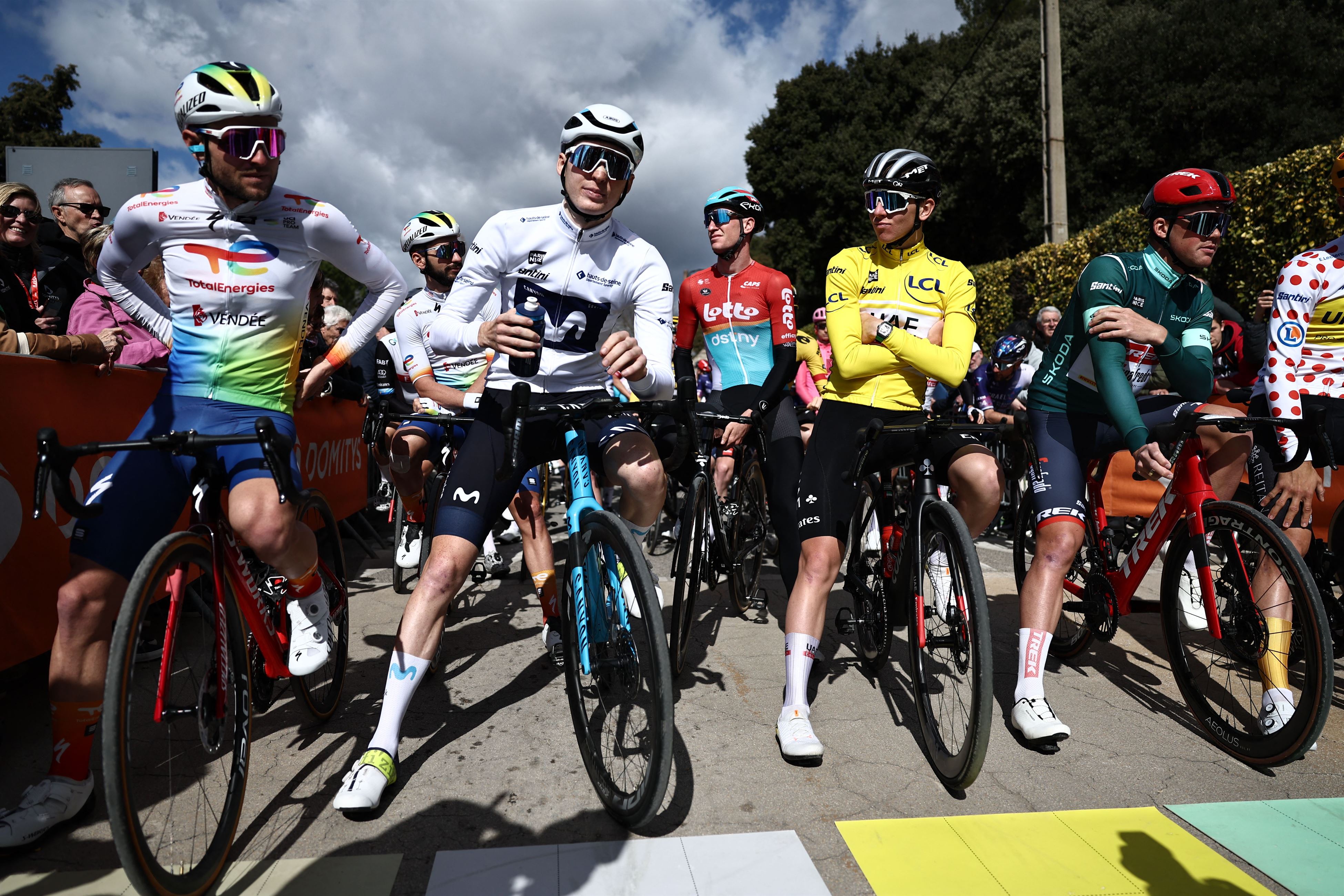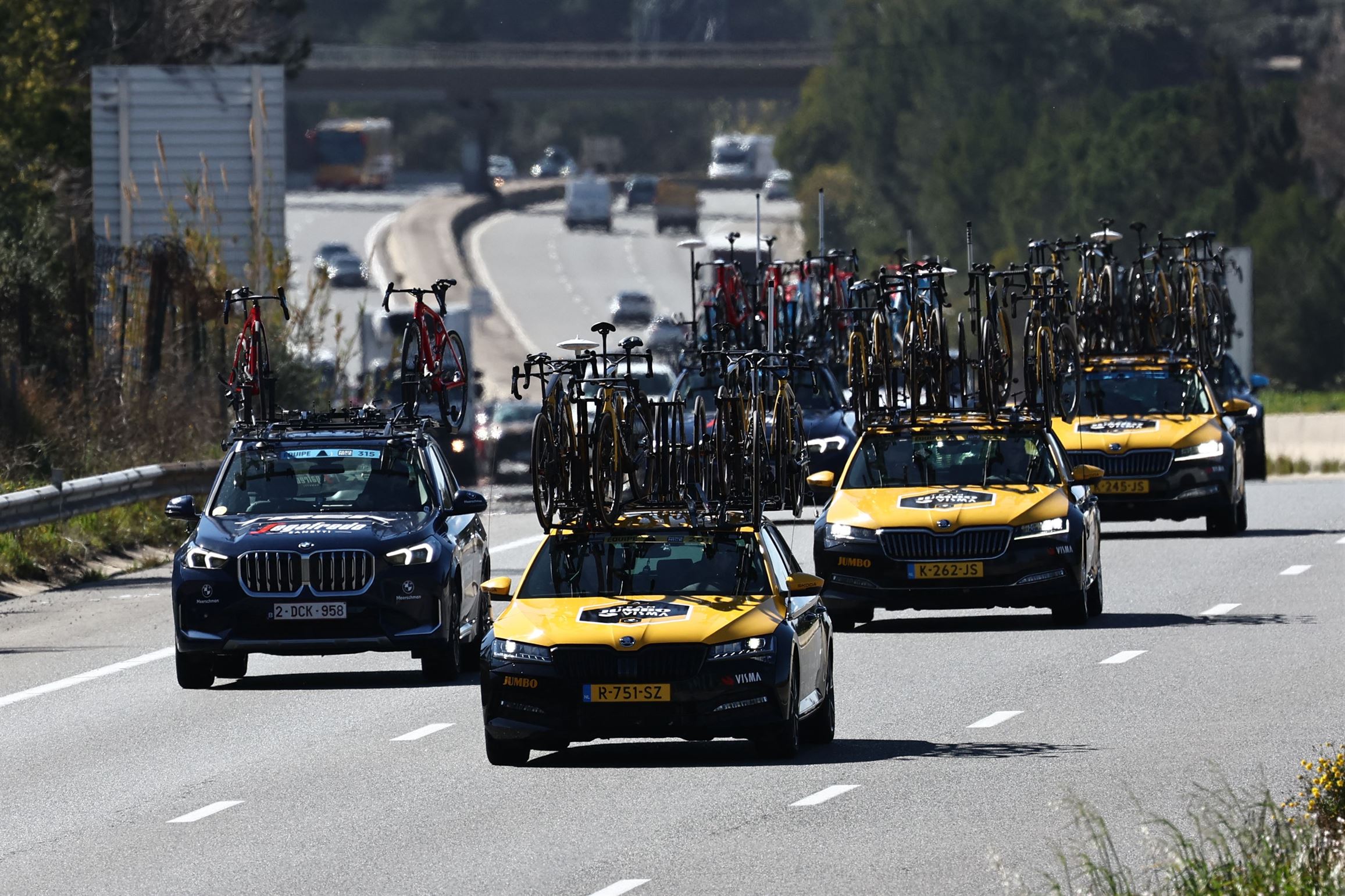
Paris-Nice has always been known as a windy race, with crosswinds always a threat across the week. They have been the reason behind many a rider's downfall, especially in the opening stages across the plains south of the French capital.
The Côte d'Azur is also known for its wind, whether it is the famous Mistral or the lesser known winds that impact the Mediterranean coast. It was a tramontane that was guilty of affecting things on Friday, blowing from the northwest.
Victor Hugo wrote of the tramontane: "The wind coming over the mountain will drive me mad." It seemed like it would drive the riders and organisers mad on Friday.
Stage six of Paris-Nice was first shortened to 80km, then called off altogether, due to "exceptionally violent winds". It was not alone in being affected by the weather, with Nice's art galleries also shut thanks to the extreme conditions. There were reports of gusts over 100km/h at parts of the course.
The 'Race to the Sun' has become used to cancellations or alterations in recent years too. There was the Covid edition of 2020, which ended up being cut short thanks to the pandemic, and even on Tuesday, the race was forced to alter its team time trial timings thanks to a police strike.
However, Friday was odd. With the decision to cut the stage short coming about half an hour before the riders began lining up, and then the total cancellation coming an hour later as riders were driven to the new "start".
The peloton rolled out of Tourves, did a little loop around the start town - to please the hosts, one assumes - before they climbed off their bikes and onto their buses to complete the first part of the stage on four wheels rather than two, although this later ended up being the whole stage.
One could see the impact the wind was having just on the drive from the start to the finish, which was supposed to be in La Colle-sur-Loup, just to the west of Nice. Every windsock in the Var and Alpes-Maritimes was full and billowing, and even the operation of péage booths became awkward in the strong winds. If it was that tricky in the car, or for pedestrians, mounting a road bike was likely to result in a swift and uncomfortable trip to a farmer's field.
Speaking after the decision had been made, Jumbo-Visma directeur sportif March Reef said that it was "difficult" but it was the "best decision in the end".
"It's a strong decision from the organisers, they have certain interests," he explained. "They made deals, organise the race, they want it to happen. They were searching for a way to still have something today. On the other hand you have the riders and the teams, and some of the organisers, they have to think about the safety of everybody.
"It's always a thin line in those situations, it's difficult to make that decision. In the past you always started, and then had the conclusion to stop. I'm really happy they took this decision before the race. It's difficult, but I think this was the best decision in the end."

The race convoy heads east without a race to follow
Four hours earlier, at the start in Tourves, the riders adjusted to the the fact that the stage would be shortened, before they knew of its cancellation. Most found out just as they left the bus for the sign-on, or even from peers of the peloton as they rolled down towards the start.
"I don't want to see anyone on the ground," Movistar's Matteo Jorgenson said. "With this much wind, it's likely to be very dangerous. I actually think it's a good decision. I would have raced, full gas, but I think it's a good decision.
"At Ardèche a few weeks ago there were only 50km/h gusts and there were crashes."
Others were a bit more perplexed by the changes, especially in a start town where it seemed blowy, but not quite a hurricane.
"Right now it doesn't feel super crazy, maybe on the tops of the climbs it's a different story," Neilson Powless (EF Education-EasyPost) said. "They're potentially dangerous. I guess I'm wondering why there's such a drastic change, but they have more information than I do. "
It became a case of adjusting to the new normal, which would be difficult with such a last minute change. It is not often that such a short stage race has a rest day, as Friday effectively became.
"I just heard when I was getting off the bus that there would be changes," Powless continued. "It's going to throw everybody off a bit. I fuelled for a 200km stage today so I don't know what to do with my meals now.
"Today was going to be a really good opportunity, even if not for a stage win, gaining some time on GC or racing well from the favourites group. It would have been a nice opportunity."
La Colle-sur-Loup turned into a ghost town thanks to the news that the race was not coming. The half-assembled finish line was taken down, and barriers that were put out for crowds that never came were put away. The Tour de France-themed bunting and the posters proclaiming the Race to the Sun's arrival seemed to mock anyone that had made the effort.
For teams, it then became a case of what to do with an afternoon off.
DSM, oddly, went for a ride in those violent wins, while others, like Bahrain-Victorious and Jumbo-Visma, stuck to rollers or the turbo trainer.
"It becomes a strange situation, because you're normally in the rhythm," Reef said. "You go to the start, prepare, go to the hotel. Now, in a stage race of eight days we have a rest day. It's something we now have to take care of. The riders will have lunch and then do a roller session, because we don't think it's needed to go on the road.
"The stage was not cancelled for nothing, the wind is still blowing, and I don't think it's respectful to the organisers for our riders to go out and train on the road. Then after, we have a relaxed evening, then prepare for the upcoming two days."
There are still two more days of Paris-Nice, two decisive days, and the organisers will hope that too much wasn't lost on Friday. At least no one was driven mad by the wind.

